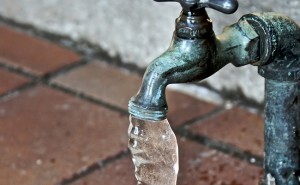
11
Feb
Help Your Home Weather the Cold
Old man winter has visited North Texas with a vengeance this month with some of the coldest temperatures seen in years. Here are some tips that may help you avoid costly repairs often associated with freezing temperatures.
- Remove garden hoses from outside faucets and insulate them with covers. Newer homes have better pipe insulation; however, failures may occur if the cold reaches extreme levels for our climate. This is absolutely a case where a few dollars of prevention can save thousands in damage.
- Turn outdoor sprinkler systems off and replace batteries in the system’s rain/freeze sensor. Irrigation systems should not be operated in below freezing temperatures. In addition to damage to the system, water from an irrigation system may freeze on roads and sidewalks, posing severe hazards for vehicles and pedestrians. Rain/freeze sensors are designed to prevent system operation during cold weather. However, the best (and safest) strategy is to simply turn the system off until warmer weather arrives.
- Set faucets so they slowly drip. Ice generally forms in water lines when outside temperatures fall below 20 degrees. This may cause pipes to freeze. Water expands when it freezes, often to the point where pipes burst. Dripping faucets can prevent this from happening by relieving the pressure. PEX piping, which is common in newer North Texas homes, offers a potential advantage over rigid plumbing such as copper or hard PVC. Due to its flexibility, PEX has a small margin of expansion under the damaging pressure caused by ice formation. If the weather gets cold enough, PEX pipes will freeze like any plumbing. However PEX may be less likely to rupture due to their expansion margin and the fact that they are smaller in diameter. Less water in the pipe lowers the damage potential caused by freezing upon expansion.
- Wrap fire sprinkler pipes and all others that are exposed to the outdoors or in unheated areas of your home. Fire sprinkler systems in North Texas are notorious for causing extensive property damage if cold weather precautions are not taken. This primarily occurs when sprinklers are installed over outdoor patios and garages. Be sure to set your thermostat at a low level and do not turn off the heating system altogether. Consider calling a professional to evaluate your system prior to the onset of winter weather.
If you have any more questions about how to get your home ready for the cold, ask us via our Contact page.